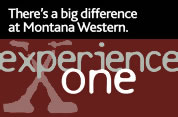|
Honors Program: A pathway to excellence.
The History of Science
“No one can really feel at home in the modern world and judge the nature of its problems- and the possible solutions to those problems- unless one has some intelligent notion of what science is up to.”
-Isaac Asimov,
Science is omnipresent in our daily lives but is too often construed as fixed and static rather than dynamic and constantly evolving. The goal of this course is to historically situate the developments of science by embedding these into their proper social and cultural contexts. In doing so, students will be able to better understand the particular circumstances that led to asking certain questions, the technology available (or created) to explore these, the answers produced, and the challenges these answers nearly always faced before becoming accepted as true or dismissed as false. The progression of science was neither linear nor uncontested and highlighting the social and historical processes that led to our current understanding of the world will allow students to contextualize the role of science in their current lives as well as challenge them to consider what role it will play in the future.
The chronological scope of the course will range from the 15th century to the present. This periodization allows for a discussion of such topics as alchemy and astrology, considered scientific in their day but since relegated to pseudo-science, as well as the developments in navigational techniques that made possible the discovery of ‘New Worlds.’ Such a periodization will also facilitate investigating the parallel, though seemingly disparate, phenomena of a “Scientific Revolution” at the same time that witch hunts, fueled by religious zeal and superstition, were also on the rise. What some historians have termed the ‘disenchantment’ of the world, due to increased scientific reasoning, also allows for investigation into the slow, contested, and often disjointed, disentanglement of science and religion into separate spheres of knowledge and understanding. Methodologically, the course will also entwine the histories and legacies of the ‘great men of science’ with those of the ordinary people who also participated in the social and collective processes of knowledge creation, often based in folk wisdom or the experimentation of artisans, that would form what we today understand as scientific thinking. Finally, the class will close with discussions about how science has become increasingly professionalized and relegated to those with certain academic credentials and access to funding, and how this has, and will continue to shape, both modern and future developments in science by influencing the types of questions asked and the actors able to contribute to answering these.
The course’s final project will entail a research paper and public presentation. Students will be asked to conduct research on a specific field of science (the expectation being that those students majoring in sciences would choose their particular field). I would hope to collaborate with scientists on campus by asking them to act as ‘consultants’ on these research projects. Ideally, this would include meetings where the scientists could help direct and guide students to understanding critical discoveries or developments in their particular field that would then help focus students’ research. This would provide yet another space for interdisciplinary collaboration while also allowing students to become ‘experts’ in the history of the particular field of science in which they were most interested. Students would then present their findings in a public presentation, open to the entire campus community, based on scholarly research but intended for an audience of non-specialists. In doing so, the intent of the class, to demonstrate the dynamic nature of science by grounding discoveries and developments within their particular historical, social, and cultural contexts, can be shared to an even wider audience.
_____________________________________
Substitutions:
HSTA 102 American History II*
HSTR 102 Western Civilizations II*
HSTR 274 World History*
GEO 107 Natural Hazards*
HSTA or HSTR general 300 or 400 level but NOT culmination courses (412, 422, 423, 431, 494)
Instructor: Dr. Jessica Fowler
Time: Spring, BLOCK 5, 2023.
|

 << back
next>>
<< back
next>>

